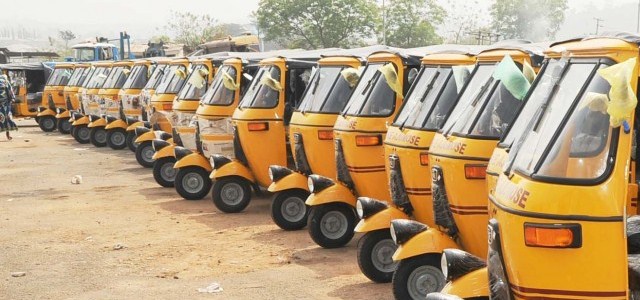Ban on tricycle has no punitive motive – VIO
The Directorate of Road Traffic Services (DRTS) of the Federal Capital Territory Administration (FCTA) has said the decision to enforce the restriction of tricycle in Abuja city was in line with the directive of the minister of FCT, Mallam Muhammad Musa Bello to sanitize the public transport system. The Public Relations Officer of the DRTS, […]

The Directorate of Road Traffic Services (DRTS) of the Federal Capital Territory Administration (FCTA) has said the decision to enforce the restriction of tricycle in Abuja city was in line with the directive of the minister of FCT, Mallam Muhammad Musa Bello to sanitize the public transport system.
The Public Relations Officer of the DRTS, also known as Vehicle Inspection Office (VIO), Mr. Kalu Emetu, who spoke with our reporters in an interview said the policy is not meant to bring about hardship upon Abuja residents as some people have alleged.
He said the haphazard arrangement in Abuja public transport system was such that needed urgent attention as Abuja is a planned city which aims to be ranked in the near future as one of the best 20 capital cities of the world.
He also said that the Minister of FCT had earlier noted the carelessness of the tricycle operators therefore, mandating the DRTS to ensure that the roads are monitored for free-flow of traffic and for the general safety of road users.
According him, alternative measures have been drafted before the enforcement as meetings were conducted with all relevant agencies with a view to bringing more taxis and high capacity buses to ensure that commuters are not affected by the tricycle ban.
He stressed that only few individuals who perceived the restriction as a threat to their personal interest mobilised people to kick against the restriction.
While he reiterated government’s commitment to provide an environment that is safe for all, he said Abuja transport system was designed to complement one another and not for competition, stressing that tricycle operation was never envisaged in the Abuja master plan.
“When commercial motorcycle was banned in 2006, people kicked against it but after a while, they began to appreciate what the administration did.
“Abuja transportation master plan did not envisage commercial tricycle and motorcycles, they only came in with their business after most of them were displaced by security crises across the country and felt the business is easy to start and could also thrive in Abuja,” he said.
